
WWF India- Great Backyard Bird Count
- Guwahati, New Delhi, Thiruvanthapuram, Chennai, Mumbai and Bhopal
WWF-India, one of the country’s most prominent environmental conservation organizations, partnered with Ataavi Bird Foundation to celebrate the Great Backyard Bird Count (GBBC) 2025 through a series of citizen science activities across India. Originally launched by the Cornell Lab of Ornithology and Audubon Society in 1998, the GBBC is now a global initiative promoting large-scale bird observations via platforms like eBird and Merlin Bird ID. Ataavi’s support contributed to advancing its objective of fostering inclusive bird conservation efforts and public engagement with avian biodiversity in line with its environmental preservation goals.
Objective
- Promote citizen science participation across urban and semi-urban habitats in India
- Train individuals especially beginners in bird identification and data collection using digital tools
- Foster environmental awareness and bird conservation through engaging public events
- Build a network of nature-aware communities and future citizen scientists
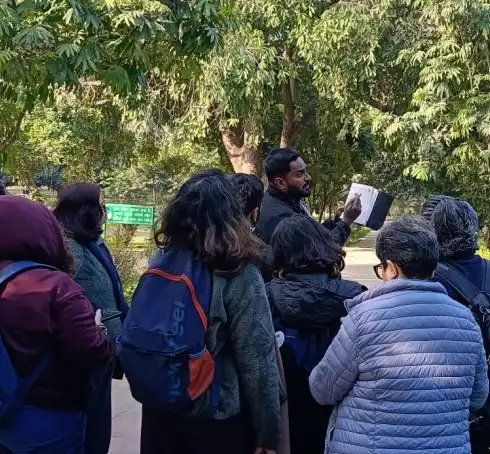
Training / Skill-building Workshop
A citizen-science based workshop with the objective to train people on how to lead walks during GBBC. In line with this, the workshop was designed to help the participants learn how to spot, observe, identify and record data related to birds using the Merlin Bird ID app and the eBird app. The budding citizen scientists also observed and learned about interesting avian behaviours and adaptations, deepening their interest in and understanding of birds. This workshop also gave them an opportunity to gain insights on how they can lead people for bird surveys, including effective ways to coordinate before and after such surveys, as well as best practices to be followed on field.
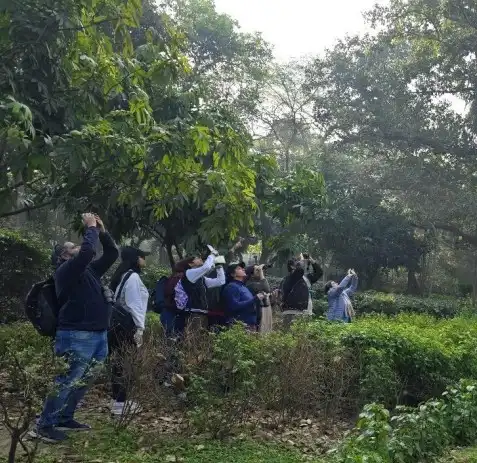
New Delhi
This walk was conducted at Buddha Jayanti Park. 27 citizens joined this walk. The walk started with an introduction to the Great Backyard Bird Count and the significance of citizen science. It was a mixed group of people consisting of experienced birders as well as absolute beginners. So, some basics tips for spotting, observing and identifying birds as well as a demonstration on how to use the eBird app for recording data was covered at the beginning. There were many interesting sightings including that of a juvenile Plum-headed Parakeet in a flock of Rose-ringed Parakeets. Owing to the spring season and fruiting fig trees in the vicinity, frugivores and warblers were in particular very active during the walk.
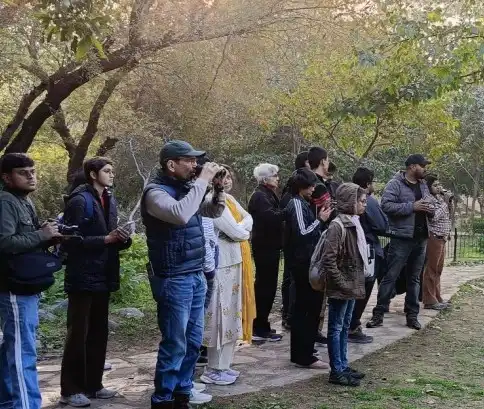
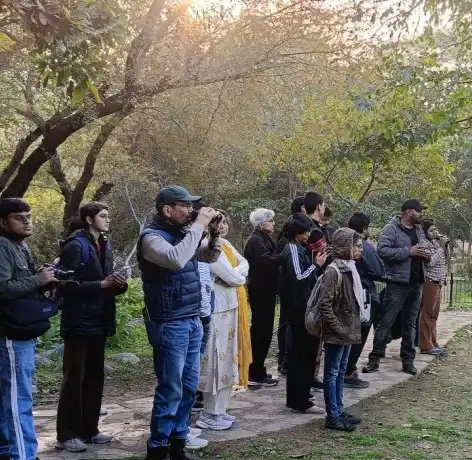
Guwahati, Assam
20 enthusiastic citizens participated in the GBBC Bird Walk organized in Assam. The walk began with an introduction to the concept and of citizen science. They learned the basic skills of spotting, identifying, and recording data on birds using the eBird app. Forest birds were particularly active during the walk, with many interesting sightings, including the Stork-billed Kingfisher, Green-billed Malkoha, and the migratory Taiga Flycatcher. Notably, the Blue-bearded Bee-eater was recorded for the first time in the Botanical Garden, Gauhati University.
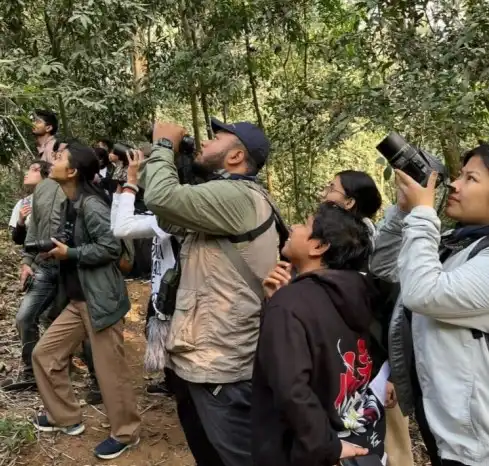
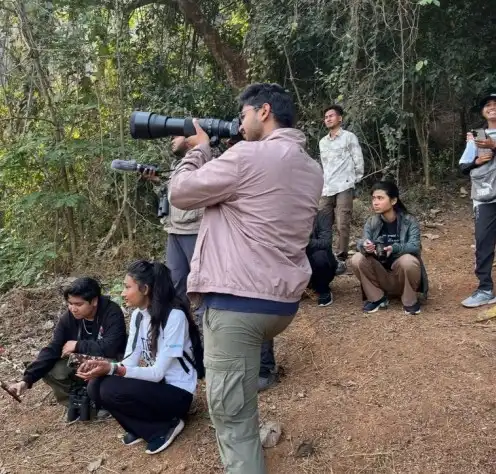
Thiruvananthapuram, Kerala
WWF-India’s Kerala State Office, organized a citizen science-based bird walk at Punchakkari wetlands, near Thiruvananthapuram city as a part of this collaboration. The participants were a mixed group of regular birders and beginners, especially the students from Vellayani Agriculture College. They recorded the observations on eBird and further learned practical tips on how to use the app to make checklists efficiently for such citizen science surveys. The citizen scientists thoroughly enjoyed the walk and expressed an interested in participating in more such activities. The notable species observed were – Asian Openbill Stork, Spoonbill, Wood Sandpipers, Grey headed Swamphen, Grey Wagtail, Pied Kingfisher, Barn Swallows, Bronzed and Pheasant-tailed Jacana, Painted Stork, Oriental Darter.
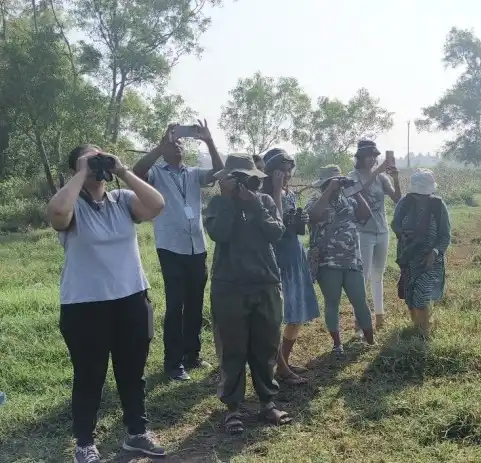
Chennai, Tamil Nadu
WWF-India’s Tamil Nadu State Office collaborated with IIT-Madras, to bring together 56 enthusiastic participants. The citizens were oriented on the use of eBird and Merlin apps to aid in birding. Divided into three teams, they explored different areas of the IIT-Madras campus, recording over 40 bird species. Highlights included the rare Malayan Night Heron and the Indian Paradise-Flycatcher, a first-time sighting for all participants. One group, near the IIT-Madras lake, spotted Blue-tailed Bee-eaters, Oriental Darters, Spot-billed Ducks and Whiskered terns. The other two teams spotted quite a few common and thicket-specialist insectivorous birds including migrants such as the Asian Brown Flycatcher. The lush green forest in the midst of the concrete jungle gave them sightings of mongooses, spotted deer, India blackbucks and Bonnet macaques.
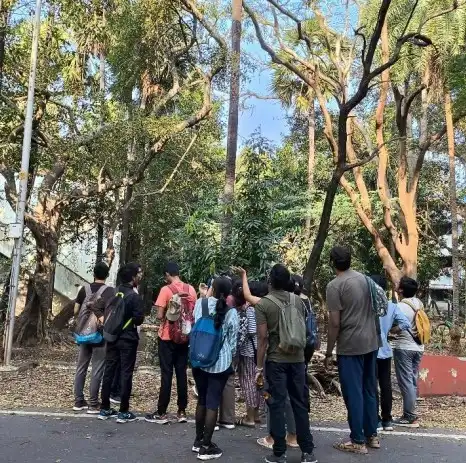
Bhopal, Madhya Pradesh
WWF-India’s State Office organised a bird walk at Van Vihar National Park & Zoo, Bhopal. A total of 35 citizens participated in the bird walk and contributed their group checklists on the eBird app. During the bird walk the citizen scientists were able to secure nearly 25 checklists with 67 identified species of birds in total.
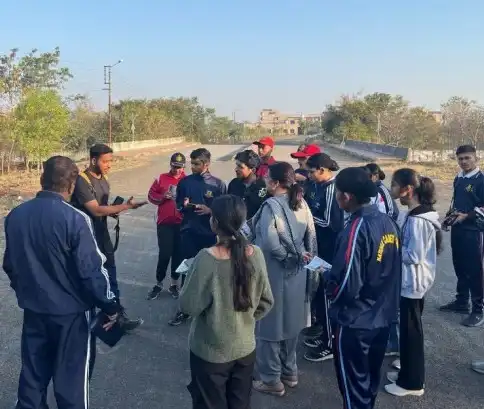
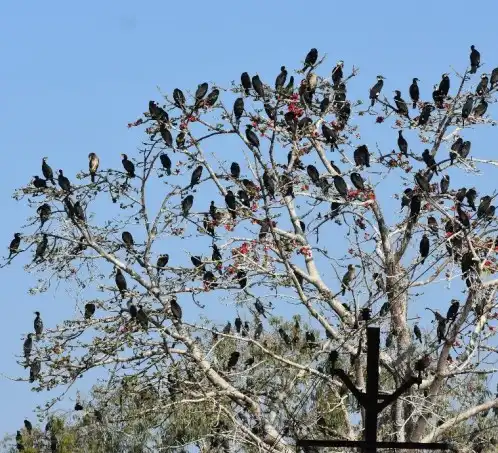
Mumbai, Maharashtra
The Maharashtra State Office of WWF-India, organized a citizen-science based bird walk at the Thane Creek Flamingo Sanctuary in Mumbai. The group of 11 citizen scientists were oriented on the concept and importance of citizen science initiatives such as the Great Backyard Bird count. They were given a demonstration on how to use the eBird app for recording their observations. They were given taught practical skills for spotting, observing and identifying birds for this exercise. The group covered a mix of forest and wetland habitat during the walk. There were many interesting sightings including Scaly-breasted Munia, Common Kingfisher and a flamboyance of over 200+ Lesser and Greater Flamingos.
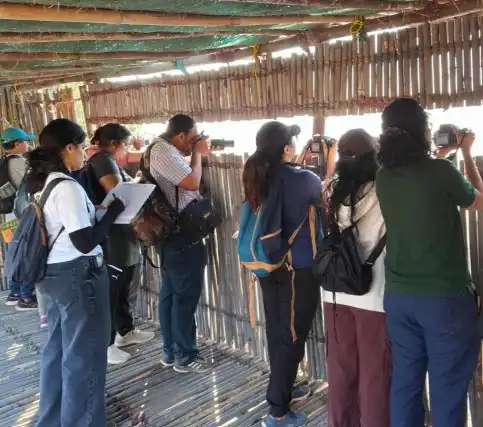
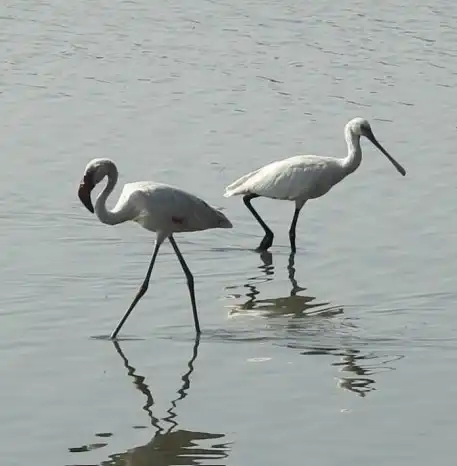
In collaboration with


Pushkar Nargolkar
An avid birder, nature educator, inspires youth towards bird and nature conservation through creative outreach and leads bird walk.

